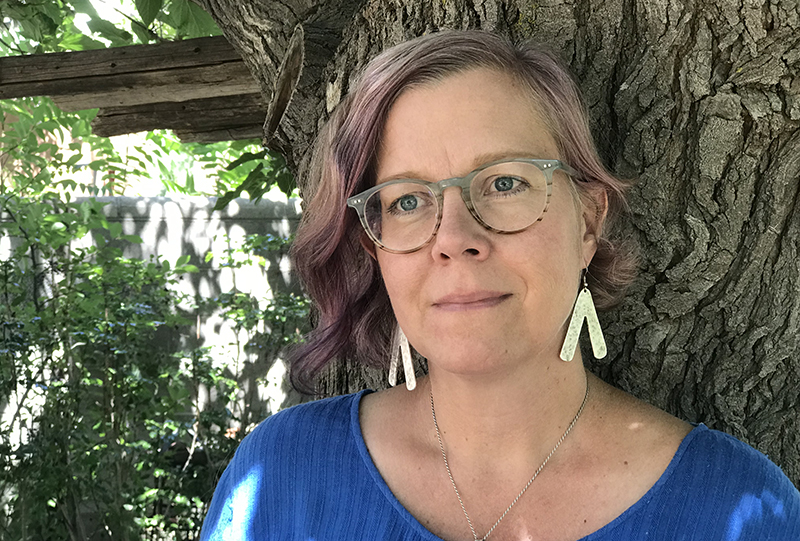“Once there was,” the poem “Glass Bird” begins, echoing some fairy-tale’s familiar “Once upon a time.” As in fairy-tales, the landscape in these poems is an ever-turning kaleidoscopic “now” where what seems as if it might be literal (“a fire that engulfed a bird”) can, in an eye-blink, assume the figurative (“the zoo of me . . . an earth inside me for animals”). Like in a magic act, the transition happens before our very eyes (the squirming rabbit pulled from the inside of a hat that was just proved to be hollow, a river of scarves flowing from an inhabited coat sleeve). After reading any of these poems, one goes back in order to better understand where the so-called material world leaves off and the imaginative world begins. The glimmering narrative backstory, like the bedtime tale, tends to stay around and become a haunting. The oddity grants the reader a new set of eyes. Out of the estrangement, time, matter, language, and emotional substrate, cohere to form miniature cities that rise and fall as one goes about the day. Nothing is decided because nothing can be decided. Who is “set on fire”? Who “becomes a column of bone”? Whose feet will be glued to the floor? This is a welcome terror, unlike the terror of the real world that remains the Damocles’s sword it is. This is an escape into a dream state that will outlast any given moment because it is part of what it is to be human—to think and give shape to what is thought.
—Mary Jo Bang








